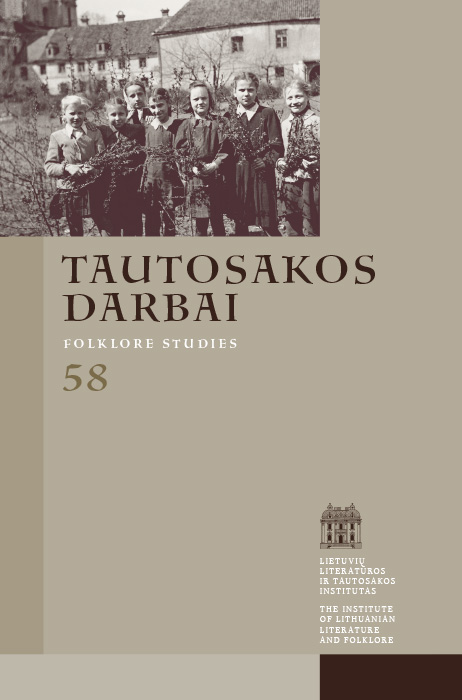Individualios miestietiško modernėjimo istorijos pokario vilniečių profesiniuose pasakojimuose
Santrauka
Straipsnyje nagrinėjami vilniečių naujakurių, atsikėlusių gyventi į Vilnių per pirmuosius du dešimtmečius po Antrojo pasaulinio karo iš kaimiškų vietovių, su profesija ir darbu susiję motyvai autobiografiniuose pasakojimuose. Keliamas klausimas, kaip šie motyvai atskleidžia individualų modernios miestietiškos kultūros formavimąsi. Profesiniai motyvai gyvenimo istorijose tiriami naratyvinės duomenų analizės metodu, nustatant pašnekovams svarbias pasakojimo linijas, susiejant panašius skirtingų žmonių pasakojimus; šiuo atveju – pasakojimus apie darbinę patirtį ir profesinį kelią. Profesijos motyvas pasakojimuose analizuojamas kaip svarbus modernaus miestietiško tapatumo dėmuo, aiškinamasi, kaip miestietiškumas reiškiasi pokario naujakurių pasakojimuose apie profesijos pasirinkimą.
Atsisiuntimai
Skaitomiausi šio autoriaus(ų) straipsniai
- Mykolė Lukošienė, Teritorijos žymėjimas kintančiame rajone: Šančių paradas „Kėdė“ , Tautosakos darbai: T 60 (2020)
